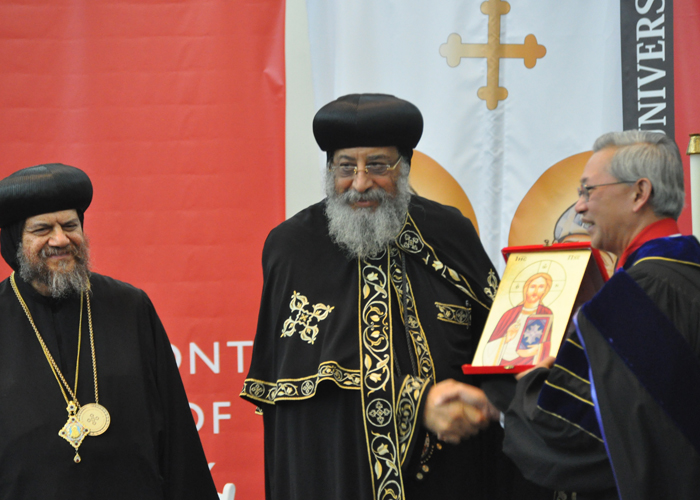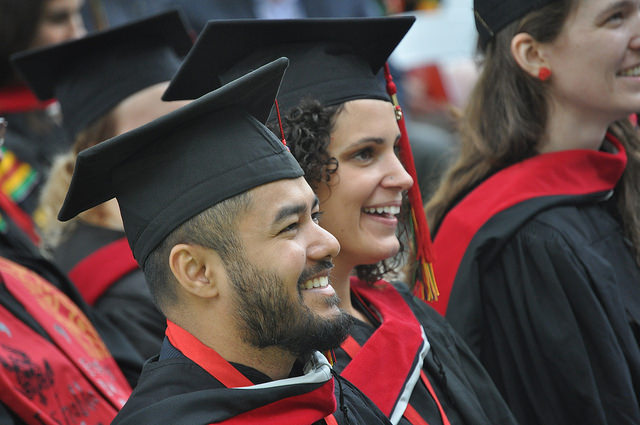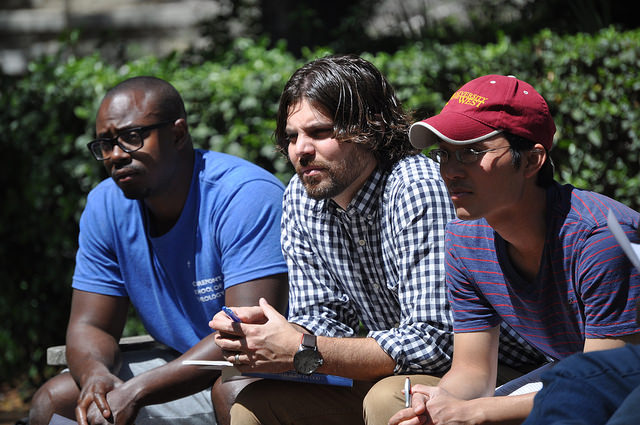History
Claremont School of Theology was established under a charter that explicitly called for the School to commit itself to ecumenical education and engagement. Over time, that commitment was broadened to include interreligious education and engagement. CST has lived out this commitment over the decades through the on-campus presence of students, faculty and staff from a wide range of traditions.
Over its nearly six decades of history, Claremont School of Theology has learned that there is nothing to lose in opening its doors to students and partners of a wide diversity of traditions. Quite the contrary, in fact. It has been our experience that exposure and engagement with traditions different from one’s own result in greater depth and clarity of belief and practice.
President Jeffrey Kuan

Faculty

The CST faculty embodies a rich diversity of traditions extending beyond its United Methodist roots. The current faculty includes ordained and lay representation from the Presbyterian, Episcopal, Roman Catholic, African Methodist Episcopal and Nazarene traditions within Christianity.
In 1992, Prof. Marvin Sweeney was appointed as Professor of Hebrew Bible, becoming the first interreligious member of the CST faculty. Twenty years later, Najeeba Syeed joined the faculty as Assistant Professor of Interreligious Education. As CST’s first Muslim faculty member, Syeed brought a wealth of experience in conflict resolution among communities of ethnic and religious diversity.
A number of CST’s faculty adopt an interreligious approach to their wide ranging research projects.
Listen to an interview with Duane Bidwell, Associate Professor of Practical Theology, Spiritual Care and Counseling, by the CBC program Tapestry on the topic of multiple religious belonging.
Curriculum
Interreligious exposure and awareness is built into the heart of the CST experience. Most master’s students are required to complete a course in Interreligious Leadership and Dialogue as a core requirement of their curriculum.
The new Hybrid/Online Doctor of Ministry (D.Min.) in Spiritual Renewal, Contemplative Practice and Spiritual Leadership seeks to nurture practicing clergy and spiritual leaders of any tradition.
CST offers a track in Interfaith Chaplaincy within its Master of Divinity (M.Div.) curriculum that prepares students to serve in institutional settings like hospitals, prisons and the military that require the ability to support persons of varying religious traditions.
CST’s M.Div. in Interfaith Chaplaincy is featured in this NPR story examining the role of interfaith campus chaplains.

In 2014, CST graduated the first class of the Interfaith Chaplaincy track of the M.Div. That class of three included one Muslim graduate, one Jewish graduate, and one Roman Catholic graduate.
Read about CST’s first class of Interfaith Chaplaincy graduates.
Institutional Relationships

CST has also developed relationships with a wide range of schools and religious institutions to ensure that its students have every opportunity to pursue learning in a wealth of ecumenical and interreligious environments. In turn, these agreements bolster participation of students from a broad range of traditions in campus life at CST, both inside and outside the classroom.
Ecumenical Relationships
CST maintains relationships with a number of ecumenical schools and institutions including:
- Bloy House, The Episcopal Theological School at Claremont
- The Disciples Seminary Foundation
- St. Athanasius and St. Cyril Coptic Orthodox Theological School (ACTS)
Interreligious Relationships
CST maintains relationships with several interreligious institutions in and around Southern California, including:

